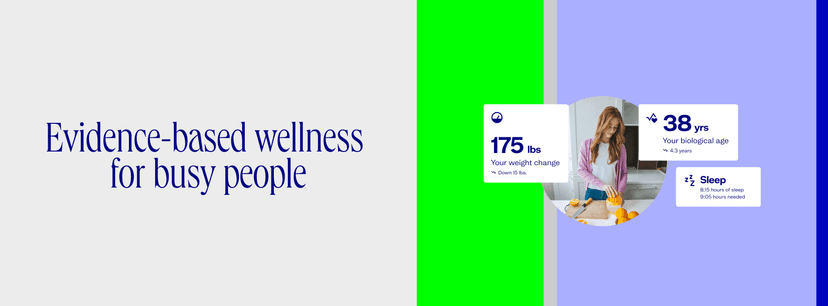The quest to extend human life has fascinated scientists and dreamers alike for centuries. Today, advancements in science and technology are making it possible to not only live longer but to live healthier lives as we age. From genetic interventions to lifestyle changes, researchers are uncovering a variety of strategies to help us maintain our health and vitality well into our later years. This article dives into the latest and most promising methods in the field of longevity science.
Key Takeaways
- Genetic and biochemical methods like CRISPR and stem cell engineering are at the forefront of extending human lifespan.
- Nutritional strategies, including NAD+ supplements and intermittent fasting, play a crucial role in promoting healthy aging.
- Pharmacological advancements such as Resveratrol and NMN supplements show promise in boosting longevity.
- Lifestyle changes like regular exercise and proper sleep are essential for maintaining a long, healthy life.
- Technological innovations, including AI and wearable health monitors, are revolutionizing longevity research.
Genetic and Biochemical Interventions in Lifespan Extension
CRISPR and Gene Editing Technologies
CRISPR/Cas9 is a groundbreaking tool that allows scientists to edit genes by precisely cutting DNA and using natural repair processes to modify the gene. This technology has shown promise in extending lifespan in various model organisms, including yeast, worms, and mice. For instance, single gene manipulations have extended the lifespan of mice by about 50% and nematode worms by up to ten times.
Telomere Lengthening Techniques
Telomeres, the protective caps at the ends of chromosomes, shorten as cells divide, leading to aging. Techniques to lengthen telomeres aim to combat this process. Telomerase, an enzyme that extends telomeres, is a key focus. By activating telomerase, scientists hope to delay aging and extend healthy lifespan.
Stem Cell and Tissue Engineering
Stem cell therapy and tissue engineering are promising areas in longevity research. These methods involve rejuvenating tissues and organs by replacing damaged cells with healthy ones. Stem cell interventions aim to increase the number and quality of stem cells, activating regenerative signals to repair aging tissues. Tissue engineering could potentially replace entire organs, offering a new lease on life for aging individuals.
The combination of these genetic and biochemical interventions holds the potential to significantly extend healthy human lifespan, making the dream of longer, healthier lives a reality.
Nutritional Approaches to Healthy Aging
Role of NAD+ in Cellular Health
NAD+ (Nicotinamide adenine dinucleotide) is a vital molecule found in every cell of our body. It plays a key role in energy production and helps repair damaged DNA. As we age, NAD+ levels naturally decline, which can lead to various age-related health issues. Boosting NAD+ levels through diet or supplements can support cellular health and longevity.
Intermittent Fasting and Caloric Restriction
Intermittent fasting and caloric restriction are two dietary strategies that have shown promise in extending lifespan. These approaches involve reducing calorie intake or eating within specific time windows. Benefits include:
- Improved metabolic health
- Enhanced cellular repair processes
- Reduced inflammation
Impact of Nutrigenomics
Nutrigenomics is the study of how our genes interact with the foods we eat. This field aims to create personalized diets based on an individual's genetic makeup. By understanding these interactions, we can optimize our diets to promote healthy aging and prevent age-related diseases.
Personalized nutrition plans can lead to more effective dietary interventions, tailored to an individual's unique genetic profile.
Pharmacological and Supplementary Strategies
Resveratrol and Sirtuin Activators
Resveratrol, a compound found in red wine, has gained attention for its potential to activate sirtuins, proteins that play a role in aging and cellular health. Sirtuin activators like resveratrol may help in extending lifespan by improving cellular function. Other sirtuin-activating compounds under investigation include pterostilbene and quercetin.
Potential of NMN and NAD+ Boosters
Nicotinamide mononucleotide (NMN) and other NAD+ boosters are being studied for their ability to enhance cellular energy and repair mechanisms. These compounds aim to increase levels of NAD+, a molecule essential for various cellular processes. Boosting NAD+ levels could potentially slow down aging and improve overall health.
Emerging Nutraceuticals
A variety of nutraceuticals, including senolytics and calorie mimetics, are being explored for their anti-aging benefits. Senolytics target and eliminate senescent cells, which contribute to aging and age-related diseases. Calorie mimetics, on the other hand, mimic the effects of caloric restriction, a well-known strategy for extending lifespan.
The growing interest in these compounds highlights the need for further research to validate their efficacy and safety in humans.
Lifestyle Modifications for Longevity
Exercise and Physical Activity
Regular exercise is one of the most effective ways to extend your lifespan. Studies suggest that 2.5 to 5 hours of moderate or vigorous physical activity per week can provide maximum benefits. However, more than 10 hours per week might reduce these benefits. Exercise helps improve cardiovascular health, boosts mood, and enhances overall physical fitness.
Sleep and Circadian Rhythms
Getting enough sleep and maintaining a regular sleep schedule are crucial for longevity. Poor sleep can lead to various health issues, including heart disease and diabetes. Aim for 7-9 hours of sleep per night and try to go to bed and wake up at the same time every day. This helps regulate your circadian rhythms, which play a significant role in your overall health.
Social Connections and Mental Health
Strong social connections and good mental health are essential for a long, healthy life. Loneliness and social isolation can negatively impact your health, leading to conditions like depression and anxiety. Engage in social activities, maintain relationships, and seek support when needed. Mental well-being is just as important as physical health for longevity.
Adopting healthy lifestyle practices, such as regular exercise, adequate sleep, and strong social connections, can significantly contribute to a longer, healthier life.
Technological Innovations in Longevity Research
Advances in Bioinformatics
Bioinformatics is transforming longevity research by enabling scientists to analyze vast amounts of biological data. This technology helps identify genetic markers and pathways associated with aging. For instance, genomic sequencing allows researchers to study the DNA of supercentenarians, uncovering genetic variants that contribute to exceptional longevity.
AI and Machine Learning in Aging Studies
Artificial intelligence (AI) and machine learning are at the forefront of aging research. These technologies analyze complex datasets to predict biological age and identify aging biomarkers. A notable example is an AI model that uses blood test data to estimate biological age, revealing differences between biological and chronological ages.
Wearable Technologies for Health Monitoring
Wearable devices are revolutionizing how we monitor health. These gadgets track metrics like heart rate and physical activity, providing insights into how lifestyle affects aging. Studies have shown that regular physical activity, as monitored by wearables, is linked to longer telomeres, which are markers of biological aging.
The integration of technology into longevity research is revolutionizing our understanding of aging and extending healthy lifespan.
Societal and Ethical Considerations
The potential for extended lifespans brings with it significant economic implications. Longer lives could strain social security systems and pension funds, as more people would be drawing benefits for a longer period. Additionally, healthcare costs might rise due to the need for prolonged medical care. However, there could also be economic benefits, such as a more experienced workforce and extended periods of productivity.
Ethical Debates in Anti-Aging Science
The quest for longevity raises numerous ethical questions. Some argue that extending life is a moral imperative if it can reduce suffering and improve quality of life. Others worry about overpopulation and the fair distribution of anti-aging technologies. There is also the concern that only the wealthy might have access to these advancements, leading to greater social inequality.
Public Health Policies and Aging
Public health policies will need to adapt to the challenges posed by an aging population. This includes creating strategies to manage age-related diseases and ensuring that healthcare systems can support a larger elderly population. Policies must also address the social aspects of aging, such as combating ageism and ensuring that older adults remain integrated into society.
As we advance in our ability to extend human life, it is crucial to consider not just the scientific and medical aspects, but also the societal and ethical implications. Balancing these factors will be key to creating a future where longer lives are a benefit to all, rather than a burden.
Conclusion
In conclusion, the science of extending healthy lifespan is advancing rapidly, driven by a combination of genetic research, technological innovation, and lifestyle interventions. While some strategies, like genome editing and stem cell therapy, are still in their early stages, they hold great promise for the future. Other approaches, such as maintaining a healthy lifestyle and diet, are already accessible and can significantly impact our healthspan. As research continues to evolve, the dream of living longer, healthier lives is becoming more attainable. The journey towards advanced longevity is not just about adding years to life but also about adding life to years, ensuring that our extended lifespans are filled with vitality and well-being.
Frequently Asked Questions
What is the role of CRISPR in extending lifespan?
CRISPR is a tool that allows scientists to edit genes. By making precise changes to DNA, it can potentially fix genetic issues that cause aging or age-related diseases.
How does telomere lengthening work?
Telomere lengthening involves extending the protective caps at the ends of chromosomes. Longer telomeres can help cells live longer and stay healthier.
What is NAD+ and why is it important?
NAD+ is a molecule that helps cells produce energy. It also plays a role in repairing damaged DNA, which is important for healthy aging.
How does intermittent fasting help with aging?
Intermittent fasting can help reduce inflammation and improve metabolism. These benefits can contribute to a longer, healthier life.
What are sirtuins and how do they affect aging?
Sirtuins are proteins that help regulate cellular health. Activating them with compounds like resveratrol may slow down the aging process.
Why are social connections important for longevity?
Having strong social ties can reduce stress and improve mental health, both of which are linked to a longer lifespan.
























